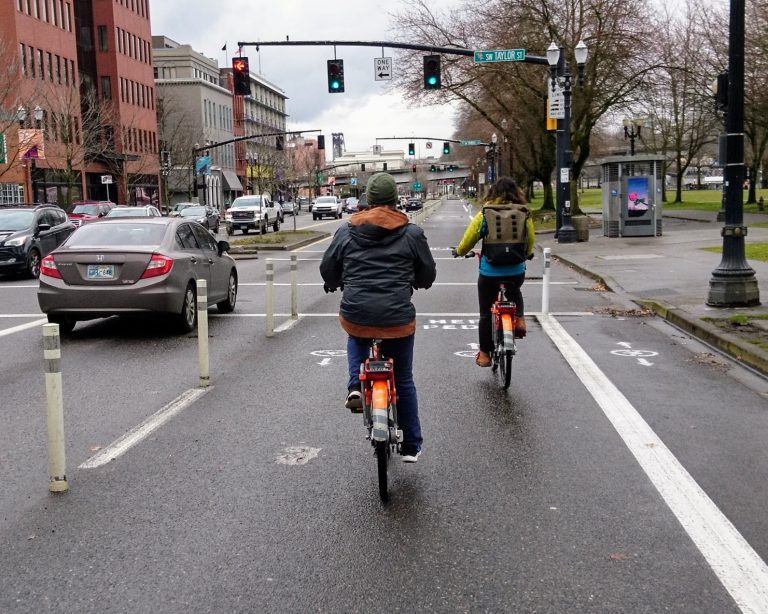
Many Canadian cities have strategic goals to increase “active” travel (walking and cycling), as a means to reduce emissions, congestion, and physical inactivity. For example, Vancouver’s long-range transportation plan articulates a target of one-third of trips by foot and bicycle in 2040, with the largest increase from current travel patterns planned for bicycle trips. Improving cycling conditions to accommodate “All Ages and Abilities” of potential riders is a key strategy to expand access to and participation in cycling.
The proposed research aims to create new knowledge about how cities can accommodate cycling by individuals with diverse physical preferences and capabilities through insights into how cycling speed and energy expenditure (physical exertion/effort) mediate route and travel mode decisions. This research addresses three main behaviours of interest in transport planning: travel mode, route, and speed choices. The hypothesis is that individuals have diverse preferences and capabilities related to energy expenditure during travel, which manifest as different travel behaviours.
For example, travellers with a higher perceived cost of energy will likely bicycle slower, take longer routes to avoid hills, and be more influenced by the availability of electric pedal-assist bicycles (e-bikes). Such considerations are important for transport policy, infrastructure planning, facility design, and safety and health impact assessments. Understanding speed and energy preferences and capabilities, and their influence on travel behaviour, can enhance transport planning tools by making them more accurate and sensitive to traveller and vehicle characteristics such as physical capability, bicycle weight, and electric motor assistance.
Planners would be able to answer questions such as: Would lighter bike-share bicycles increase usage or diversity of riders? Do e-bike speed regulations effect adoption by younger or older travellers? And how would routing a bikeway over vs. around a hill impact cycling accessibility for different groups? Anticipated outputs include academic papers and analytical tools for planning practice, as well as policy and planning recommendations for Canadian cities.
The recent emergence of e-bikes and other mobility devices such as electric scooters amplifies the importance of the proposed research for transport planning. Canadian cities face major decisions about vehicle regulation, operating rules, and sharing systems on public facilities. The proposed research has the potential to make important contributions to our understanding of travel behaviour and planning practice to accommodate cycling by diverse travellers.